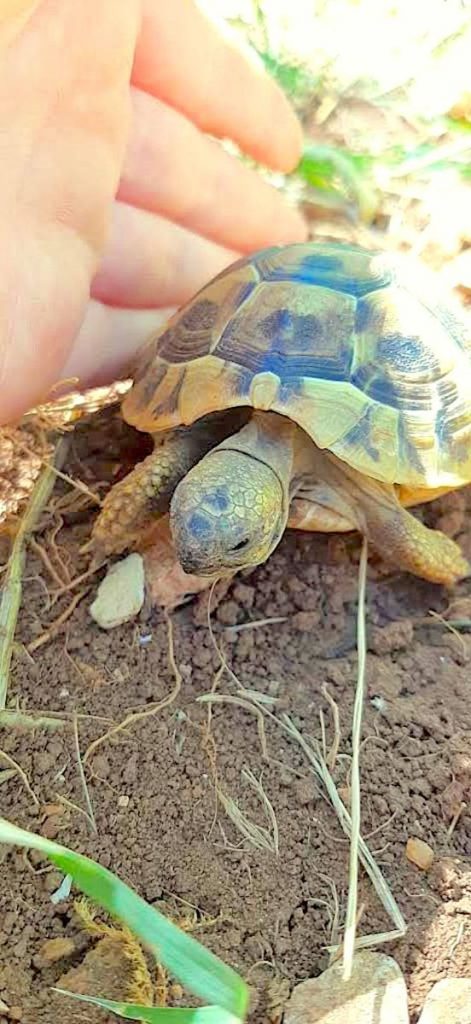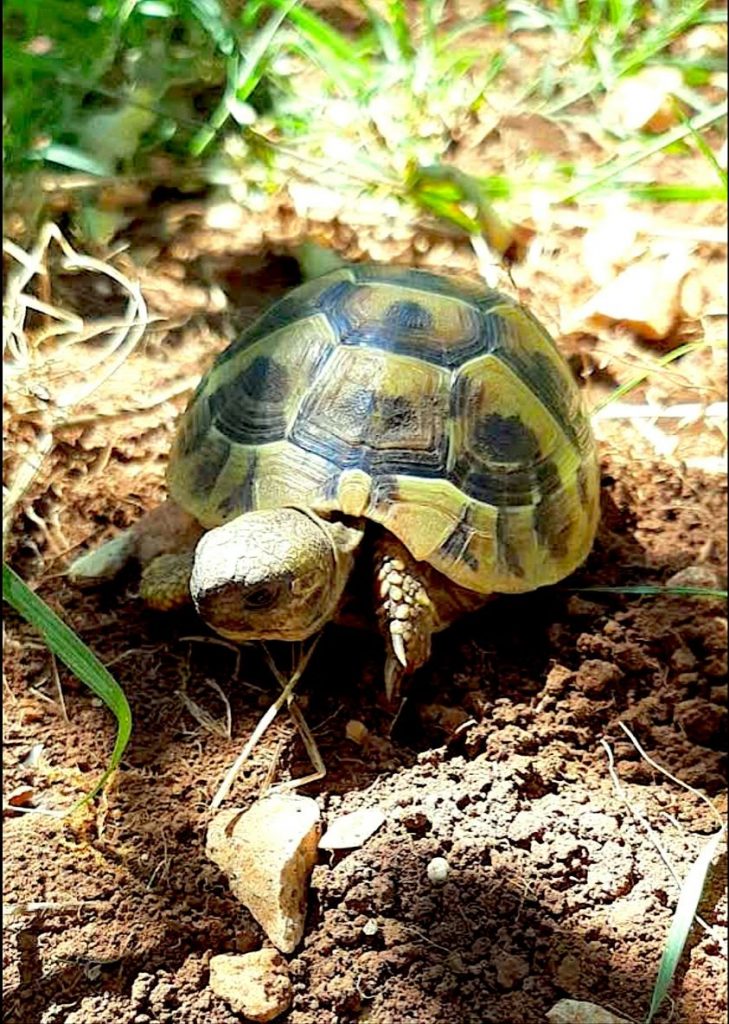Hermann’s tortoise, also known as Testudo hermanni, is a common tortoise species in the Mediterranean. We have two living in our garden this one is a baby that is around 2 to 3 years old! extremely cute and tiny, the first time she appeared this year! We were waiting for it for a long time, and here she is FINALLY. We should be seeing it more often from now on, and we will be doing many photo sessions all the way until October. Hermann’s tortoise is a reptile and therefore a cold-blooded creature. This means that they need the warmth of the sun to be able to be move, but they also need shade not to overheat and to rest in. That’s why they often hide in our garden under big leaves. If Hermann’s tortoise does not get enough heat from the sun, it will not be able to move or live properly. Therefore, they hibernate from around October to April. This means that they are protected from cold weather and lack of food. Hermann’s tortoise is mainly herbivorous, however, they often eat small insects, warms, feathers and bones as a diet supplement. Often, it seeks mushrooms and plants that are toxic to mammals. Some people believe that this rids them of intestinal parasites. Just like with young turtles, Hermann’s tortoise eggs and young are at risk of being eaten by birds and some mammals. However, due to their ability to hide in their shells as adults, they have very few natural predators. Their typical life span in the wild is 40-60 years, however, in captivity, they can live up to 100 years. Hermann’s tortoise usually become sexually mature after 10-20 years. This means that after hatching they have to survive a minimum of around 11 years to actually have their own offspring! Once they reach sexual maturity they are about 13-20 cm in length and can weigh around 3-4 kg. Females are usually bigger and heavier than males. After warming up in the sun in the early morning Hermann’s tortoises usually eat until mid-morning, then hid from the heat of the day and become active again in the evening. Females usually dig their nests of 2-12 eggs from April to October. It is also believed that tortoises can lay fertile eggs up to 4 years after mating. However, after every season fertility reduces significantly. Hermann’s tortoises are often kept in captivity and are easy to buy, trade and breed. This is very bad for the tortoises as they need large areas to feed on and need constant temperature regulation and shade. If the temperature of a tortoise gets above 39-44 degrees it can die. Keeping any animal in captivity is cruel and minimises the chances of the animal growing to be able to reproduce and not be disadvantaged. Hermann’s tortoises are an easy way to make money for some people, as after hibernation they often come back up in people garden, which happens quite often to us, but other people pick them up and sell them. Since they are endangered and rare, even though they are protected, many people want to have a rare animal in their house. If you have Hermann’s tortoise as a pet you should try to give it a high temperature during the summer and shade and low temperature during the winter, to match their normal lifestyles. Usually, if you try to imitate the climate that is in some places on the Mediterranean coast that should suit your tortoise well. However, I am strongly against animal captivity, since once they have been captive for even less than a year, they will not be able to naturally reinstate and adjust themselves to their normal habitat and environment. So, pleassee don’t have animals in captivity! If you find a website where people are illegally selling turtles and tortoises please report it to us, the police or any nature conservation organisation. This trade must be stopped to ensure the safe future of Hermann’s tortoises! Also, please share any information you have with your friends and us, as every person that understands the importance of turtles and tortoises, is another person helping turtles! We must find a way to make protection laws more strict and make it much harder for people to get away with these kinds of things! Let’s all stay responsible for everything living sounding us.


